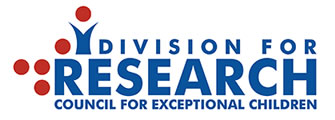
Caregivers face a range of emotional experiences and challenges. This is especially true when it comes to caring for children with medical, developmental, or mental health challenges. Daily pressures and stress related to caring for a child with special needs can cause caregivers to ignore their own emotional health. Using positive coping strategies can help improve the way you feel, both physically and mentally
Fortunately, there are many positive ways to cope with your feelings. For example:
- Make time for self-care. It can be difficult to manage all your child’s needs. Create a schedule for yourself that includes self-care activities and breaks, especially during more stressful times. What activities make you happy? Reduce your stress level? Leave you feeling calm and recharged? Try taking a walk outside, eating your favorite foods, scheduling time for brief meditation/mindfulness practices, or calling a friend. Taking care of yourself helps you take care of your child!
- Develop self-compassion. Remind yourself that aspects of parenting can be very challenging and isolating. Allow yourself to experience all of your emotions. Remember that it is very common and okay to feel sad, worried, mad, or disappointed at times. Allowing yourself to feel your emotions rather than ignore them and remembering that you are not alone in feeling a range of emotions can help you cope with challenging situations and stay calm when needed.
- Use your strengths. Use healthy coping strategies such as journaling, exercise, meditation, or spending time outside. Now is also the time to reach out to and rely on your support system and ask for what you need. It can be helpful to let others know how they can best support you (e.g. listening rather than giving advice, being available for quick phone check-ins, etc.).
- Set boundaries for helpful information. While it is important to have information about your child, it is also easy to get lost in searching for information online and become overwhelmed. You might choose to do research for a set amount of time and from sources you trust like your local children’s hospital websites or books recommended by your child’s doctors. Additionally, consider what works for you and your family. For example, some people find support groups helpful to learn more about their child’s health and gain information while others do not.
But what if you try these things and it isn’t helping? No one can do everything on their own, and it’s important to ask for more help if you need it. Consider seeking out a licensed mental health provider if:
- Your physical health begins to get worse (e.g., difficulty sleeping, major changes in eating habits, increases in pain).
- You are having a hard time caring for your child.
- You notice yourself isolating from friends and family.
- Your work is suffering.
- There is increasing conflict in your relationships.
- You have thoughts of harming yourself or others.
Getting more help from a professional is an important thing you can do to care for yourself and your child. Don’t know where to start? Ask your own primary care physician for a place to get started.
If you have thoughts of harming yourself or others, seek help immediately. Call 988 or the National Suicide Prevention Hotline at 1-800-273-8255
Other resources
https://www.abct.org/get-help/deciding-when-to-seek-treatment/
Proper Citation for this blog post:Salley, C. G., Kenowitz, J., Lee, D., Morgan, C. H., Sexton, K. K., & Caregiver Wellbeing Special Interest Group (SIG) of APA Division 54: Society of Pediatric Psychology (September 4, 2022). How do I cope with this!? Active strategies for managing difficult feelings as a caregiver. https://infoaboutkids.org/blog/how-do-i-cope-with-this-strategies-for-managing-difficult-feelings-as-a-caregiver/
















